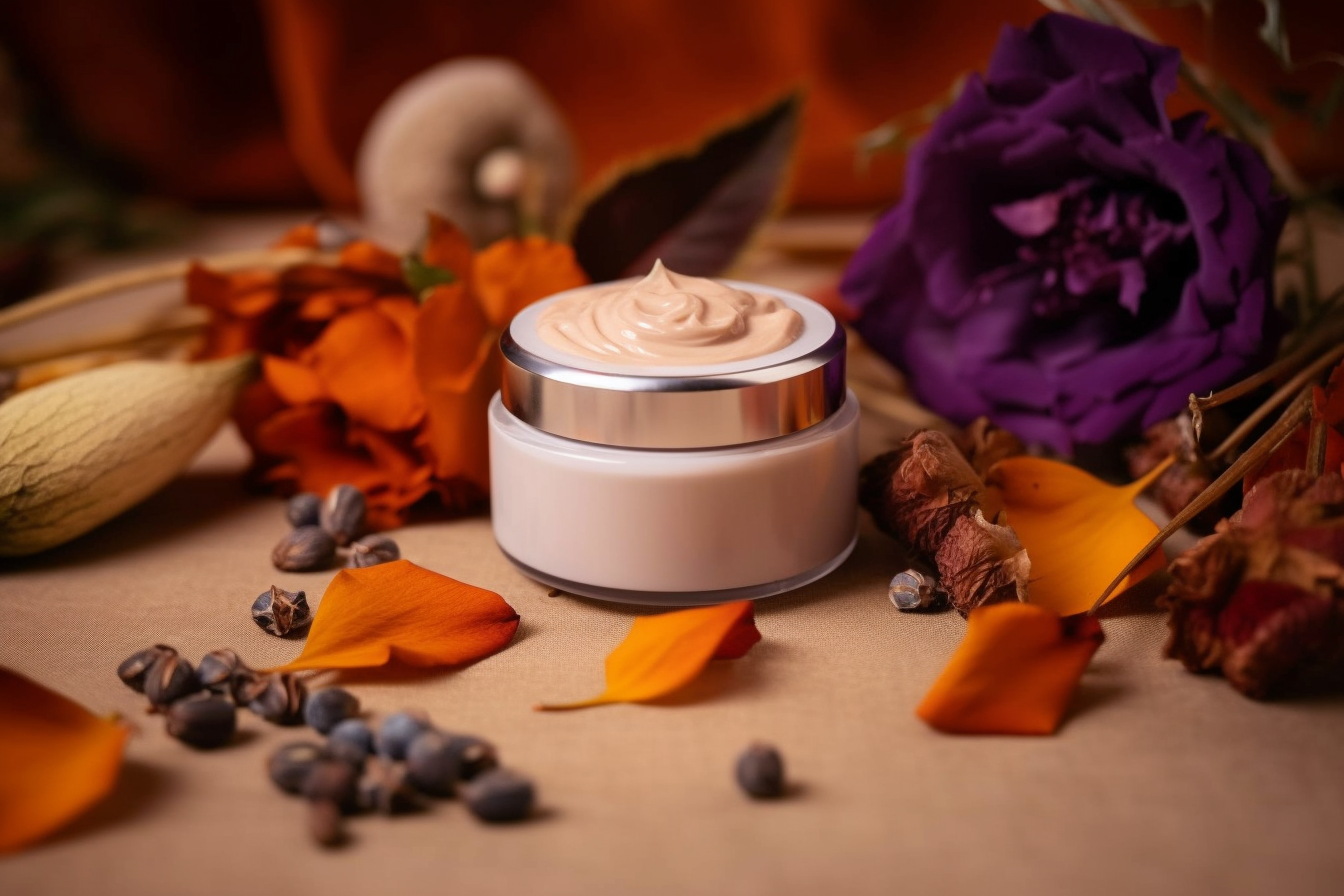
Maintaining healthy skin is a goal that many people strive for, but achieving it can be a challenge. While a daily cleanse and moisturizing routine are important, they may not be enough to keep your skin looking youthful and radiant.
The skincare industry is flooded with products that promise to deliver flawless skin, but not all of them are created equal. Understanding the ingredients that are beneficial for your skin and those that should be avoided can make all the difference in achieving your desired results.
In this article, we will explore the must-have ingredients that protect, brighten, and improve skin texture, while also discussing the harmful ingredients that can cause skin irritation and even cancer. By understanding what to look for and what to avoid, you can take control of your skincare routine and achieve the healthy and glowing complexion you desire.
Whether you are a skincare enthusiast or a beginner, this article will provide you with the knowledge and tools you need to make informed decisions when it comes to your skincare routine.
Key Takeaways
- Look for skincare ingredients like Vitamin C, Hyaluronic Acid, Retinoids, Peptides, Niacinamide, and Argan oil to improve the health and appearance of your skin.
- Avoid harmful ingredients like Parabens, Phthalates, Sulphates, Fragrances, Formaldehyde, and Oxybenzone by reading the ingredient list when shopping for skincare products.
- Beneficial ingredients can protect, brighten, moisturize, and promote collagen production while harmful ones can cause skin irritation, disrupt hormones, and even increase cancer risk.
Beneficial Ingredients
Beneficial ingredients that can improve the health and appearance of the skin include Vitamin C, Hyaluronic Acid, Retinoids, Peptides, Niacinamide, and Argan oil, as previously discussed. These ingredients are commonly found in top skincare brands and can be incorporated into DIY skincare recipes.
Vitamin C is a powerful antioxidant that protects the skin from environmental stressors, brightens skin tone, and improves collagen synthesis. Hyaluronic Acid attracts and retains moisture, giving the skin a youthful appearance and improving its texture.
Retinoids improve the appearance of wrinkles, skin tone, and texture, while Peptides promote collagen production and improve the appearance of fine lines and wrinkles. Niacinamide improves skin tone, texture, and hyperpigmentation, while Argan oil nourishes and protects the skin with antioxidants, fatty acids, and vitamin E.
To achieve healthy skin, it’s important to incorporate these beneficial ingredients into your skincare routine. Look for products that contain these ingredients or consider making your own DIY skincare recipes using natural ingredients like argan oil and vitamin C. By incorporating these ingredients into your routine, you can improve the health and appearance of your skin for a more radiant and youthful complexion.
Harmful Ingredients to Avoid
Detrimental ingredients commonly found in skincare products include parabens, phthalates, sulphates, fragrances, formaldehyde, and oxybenzone.
Parabens, which are commonly used as preservatives, have been linked to cancer and reproductive toxicity.
Phthalates, often used to increase the flexibility and durability of plastics, have been linked to reproductive toxicity and endocrine disruption.
Sulphates, which are used as foaming agents, can cause skin irritation.
Fragrances, containing synthetic ingredients, can irritate the skin and cause allergic reactions.
Formaldehyde, a known carcinogen, is found in many skincare products as a preservative.
Oxybenzone, a common sunscreen agent, has been linked to skin irritation, hormone disruption, and cell damage.
These harmful ingredients can have toxicity concerns and negative effects on skin health. Exposure to these ingredients can cause skin irritation, allergic reactions, and even long-term health effects.
It is important for consumers to read the ingredients list and avoid products containing these detrimental ingredients. By doing so, consumers can take control of their skincare routine and improve the health and appearance of their skin.
Skincare Shopping Tips
When searching for skincare products, it is crucial to carefully examine the ingredients list and steer clear of harmful chemicals that can negatively impact skin health.
It’s important to note that not all skincare products are created equal. While some may be effective, others may contain ingredients that could cause irritation or damage to the skin. To avoid this, it’s essential to do your research and look for products that contain beneficial ingredients like vitamin C, hyaluronic acid, and peptides, while also avoiding harmful ingredients like parabens, phthalates, and formaldehyde.
While it’s tempting to opt for budget-friendly options, it’s important to keep in mind that cheaper products may contain harmful ingredients. Instead, consider investing in high-quality products that contain beneficial ingredients and are free of harmful chemicals.
Additionally, it’s important to patch test any new products before applying them all over your face to avoid potential reactions or irritation.
By taking these precautions and being mindful of the ingredients in your skincare products, you can maintain healthy, glowing skin.
Frequently Asked Questions
Can skincare products actually reverse the signs of aging?
Skin rejuvenation is a popular concern among many individuals seeking to reverse the signs of aging.
Scientific evidence suggests that skincare products can aid in the process of skin rejuvenation, but it is important to note that these products do not offer immediate results.
Long-term effects can only be achieved through consistent use of skincare products that contain beneficial ingredients such as retinoids, peptides, and vitamin C.
However, it is important to note that while these products can improve the appearance of fine lines and wrinkles, they cannot completely reverse the signs of aging.
Additionally, the effectiveness of skincare products may vary from person to person due to differences in skin type and overall health.
Are natural ingredients always better for your skin than synthetic ones?

The natural vs synthetic debate in skincare ingredients is a complex one. While natural ingredients may be preferred by some consumers due to their perceived health benefits and lack of synthetic chemicals, scientific evidence for their effectiveness is often lacking.
Conversely, many synthetic ingredients have been extensively researched and shown to provide significant benefits for the skin, such as retinoids for improving the appearance of wrinkles and hyperpigmentation.
Ultimately, the efficacy of a skincare ingredient should be based on scientific evidence rather than its natural or synthetic origin. It is important for consumers to educate themselves on the ingredients in their skincare products and choose those that have been proven effective and safe for their skin type.
What are some common misconceptions about skincare ingredients?
Marketing hype and DIY remedies have led to common misconceptions about skincare ingredients.
One of the most prevalent is that natural ingredients are always better than synthetic ones. While natural ingredients may have some benefits, such as being less likely to cause irritation, they are not always more effective than their synthetic counterparts. Additionally, many natural ingredients can still be harmful or irritating to the skin, such as essential oils.
Another misconception is that DIY remedies are always safe and effective. However, many DIY recipes found online can be harmful to the skin and may not have any scientific basis for their effectiveness. It is important to rely on trusted sources and do proper research before incorporating any new skincare ingredients into your routine.
How important is it to use products specifically tailored to your skin type?
It is highly important to use skincare products that are specifically tailored to your skin type. This is because different skin types have different needs, and using products that are not suitable for your skin type can cause more harm than good.
Identifying your skin type is the first step in customizing your skincare routine. For instance, if you have oily skin, you should look for products that are oil-free and non-comedogenic, while those with dry skin should seek out products that are deeply hydrating.
By customizing your skincare routine based on your skin type, you can ensure that you are providing your skin with the necessary ingredients to maintain a healthy and glowing complexion.
Are expensive skincare products always more effective than affordable options?
When it comes to skincare, consumers often wonder whether expensive products are more effective than affordable alternatives. The truth is that price does not always indicate the quality or efficacy of a product.
In fact, sometimes expensive products are simply the result of clever marketing tricks. Many affordable options contain the same beneficial ingredients as their pricier counterparts, such as vitamin C, hyaluronic acid, and retinoids.
Of course, there may be exceptions where certain expensive products have unique or rare ingredients, but in general, it is possible to find effective skincare at a lower cost. It is important to read the ingredients list and avoid harmful substances, regardless of the price point.
Ultimately, the key to healthy skin is using products that work for your unique needs and preferences, rather than relying solely on price or brand name.
